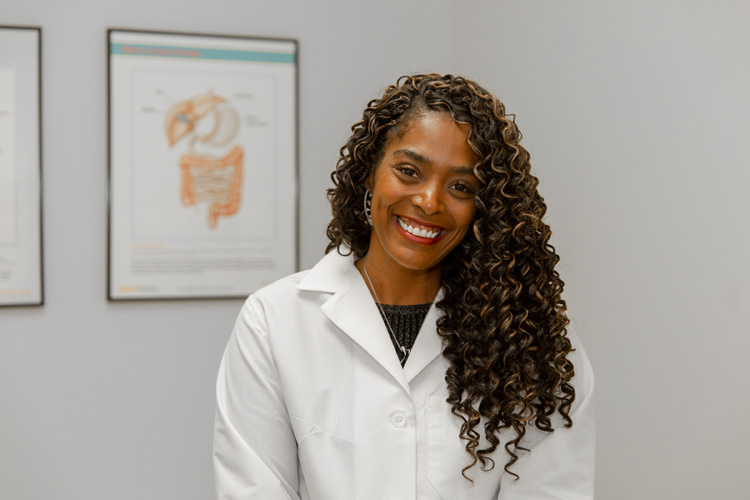
More than one-third of Americans are obese and 5 percent or more are morbidly obese, meaning they have a body mass index greater than 35: a 400 percent increase since 1986. According to the surgeon general, obesity has reached epidemic proportions in the United States.
That is very bad news because heart disease, hypertension, stroke, type 2 diabetes, at least eight different forms of cancer, osteoarthritis, liver disease, gallbladder disease, depression, respiratory disorders, kidney disease and infertility all are linked to obesity, according to the Centers for Disease Control.
So what can be done? Surgery is one option. The National Institutes of Health has declared that “bariatric surgery is currently the only effective means to reverse morbid obesity.”
Men and women have similar rates of obesity, but women are much more likely than men to seek surgery as a solution for obesity.
NIH reports that “80 percent of bariatric surgery patients are women,” and Dr. Natalee Stone, a general and bariatric surgeon with Riverside Surgical and Weight Loss Center and the Steward Medical Group, says that percentage is even higher in her practice.
At Riverside Surgical and Weight Loss Center – the area’s only “Bariatric Center of Excellence,” which has received Healthgrades’ ‘five star’ rating for bariatric surgery four years in a row – “85 percent of our patients are women,” according to Stone.
That may be, in part, because women face a number of obesity-related problems that men do not face.
“With women, obesity increases their risk of female conditions such as endometriosis [a condition in which uterine-lining tissue begins to grow outside the uterus], polycystic ovarian syndrome [a hormonal imbalance affecting both the ovaries and the release of eggs], and specific types of cancers, including endometrial cancer, breast cancer and ovarian cancer,” Stone says.
For women of child-bearing age, Stone continues, obesity decreases their fertility so they often have problems getting pregnant.
“Bariatric surgery reduces their weight and their composition of fat and thus it reduces the milieu of hormones they have in their body. It decreases all of those problems and reduces the pain that comes along with endometriosis. It [also] increases their fertility.
“When they do get pregnant, it changes their experience because they have less chances of having the complications that come along with obesity and pregnancy [such as] preeclampsia or eclampsia, which are problems with your kidney function and blood pressure.”
That said, even though bariatric surgery is known to increase fertility, Stone does have a caveat.
“Most bariatric surgeons recommend not getting pregnant [until 12 to 18 months after] bariatric surgery. That’s when we see the weight stabilize. [By then] women are able to take enough nutrients to supply the fetus.”
Surgeons like Stone work with other specialists to help their patients plan ahead, whether they are anticipating a pregnancy or not.
“Obstetricians and gynecologists,” says Stone, “can be a huge component of who needs to be involved here. It’s multidisciplinary. Rheumatologists have a subset of patients who could really benefit from bariatric surgery. So, any time I get a patient from a rheumatologist [or any other specialist], it’s really important that we discuss the patient’s conditions and how they’re going to be managed pre-operatively, post-operatively and for the rest of their life.”
Stone says she makes a point of reaching out to each patient’s other medical providers – whether it’s an obstetrician, cardiologist or a primary care physician – “because it’s really important to have them buy into this and understand how much this affects the patient’s health,” and the extent to which the patient’s behavior needs to change.
One thing that can change after bariatric surgery and affect the patient negatively is bone density.
The New England Journal of Medicine says “those who lose weight after bariatric surgery are apt to experience bone thinning, possibly causing bones to break easily. Although we generally think of osteoporosis as something that occurs after menopause, even younger women can experience this problem after bariatric surgery.”
Stone says that’s something the Riverside team watches carefully and that patients may be advised to take calcium and vitamin D through multivitamins to help prevent bone loss and have the levels of these nutrients in their blood tested regularly.
For post-menopausal women, bariatric surgery can reduce the risk of “female cancers and the coronary artery disease that come along with being post-menopausal,” Stone says. “All of those conditions get better when you lose weight.”
Calling women “the backbone of the family,” Stone is eager to meet with anyone who wants to improve their life and overall health through bariatric surgery so that she can fully explain all the available options.
Dr. Natalee Stone is a general and bariatric surgeon with the Riverside Surgical and Weight Loss Center at 14430 U.S. 1 in Sebastian. The phone number is 772-581-8003.



